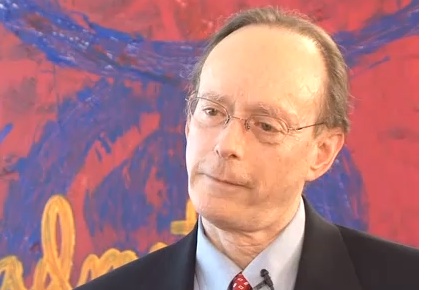Consider this excerpt from the major address given by Rabbi Rick Jacobs, president of the Union for Reform Judaism, at last month’s biennial of the Reform movement in San Diego.
“Incredibly enough … I still hear Jewish leaders talk about intermarriage as if it were a disease,” he told some 5,000 constituents. “It is not. It is a result of the open society that no one here wants to close. The sociology is clear enough; anti-Semitism is down; Jews feel welcome; we mix easily with others; Jewish North Americans (researchers say) are more admired overall than any other religious group. So of course you get high intermarriage rates — the norm, incidentally, in the third or fourth generation of other ethnic groups as well.
“In North America today, being ‘against’ intermarriage is like being ‘against’ gravity; you can say it all you want, but it’s a fact of life. And what would you prefer? More anti-Semitism? That people did not feel as comfortable with us?
“In any event, we practice outreach because it is good for the Jewish people. Interfaith couples can raise phenomenally committed Jewish families, especially when they do it in the Jewish community that is offered uniquely by the Reform movement.”
It’s true, as Rabbi Jacobs suggests, that interfaith couples can raise deeply committed Jews. I admire him and his work, and I hope his movement is successful in its ambitious plans to make that happen. But the jury is definitely out, with demographic experts debating whether the glass is half full or half empty, based on the findings of the recent Pew Research Center study on Jewish identity. The optimists acknowledge that while it is far more likely that children of intermarriage say they have no religion, 59 percent of that cohort who are adults under 30 say they are Jewish, a significant increase in recent years. “In this sense, intermarriage may be transmitting Jewish identity to a growing number of Americans,” write Pew researchers Greg Smith and Alan Cooperman.
Others say that only a small percentage of adult children of intermarriage marry Jews, and that based on projections of current data, less than 10 percent of them will in turn raise their children as Jews. Sociologist Steven M. Cohen cites the remark of the late American Jewish Committee sociologist Milton Himmelfarb when asked what to call the grandchildren of intermarried Jews. “Christian,” he said. (Cohen adds: “He was approximately 92 percent correct.)
Commenting on Rabbi Jacobs’ biennial remarks, Cohen said he thought it “irresponsible” for the Reform leader not to promote Jews marrying Jews. “Isn’t it an inherent obligation” for him to do so? he asked. And just because it may be going against the popular grain, “does that mean rabbis shouldn’t encourage Shabbat observance, keeping kosher, etc.?”
Gary Rosenblatt, “‘Being Against Intermarriage is Like Being Against Gravity'”, The Jewish Week (17 January 2014), 7.
